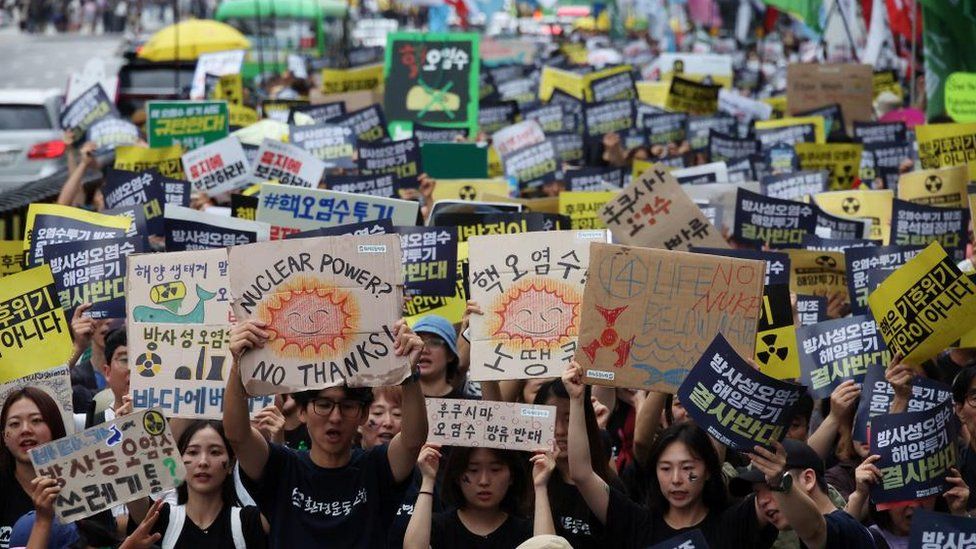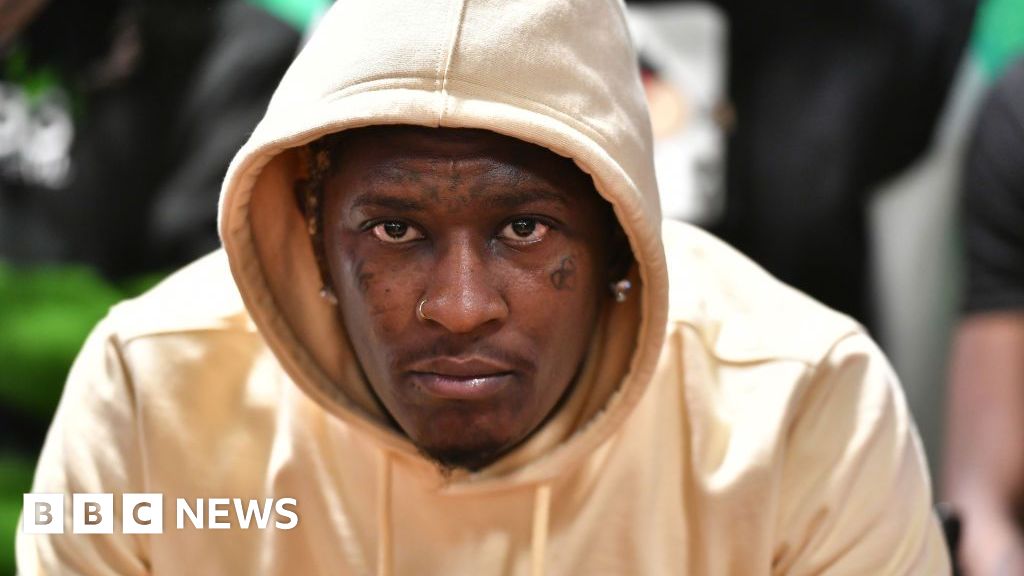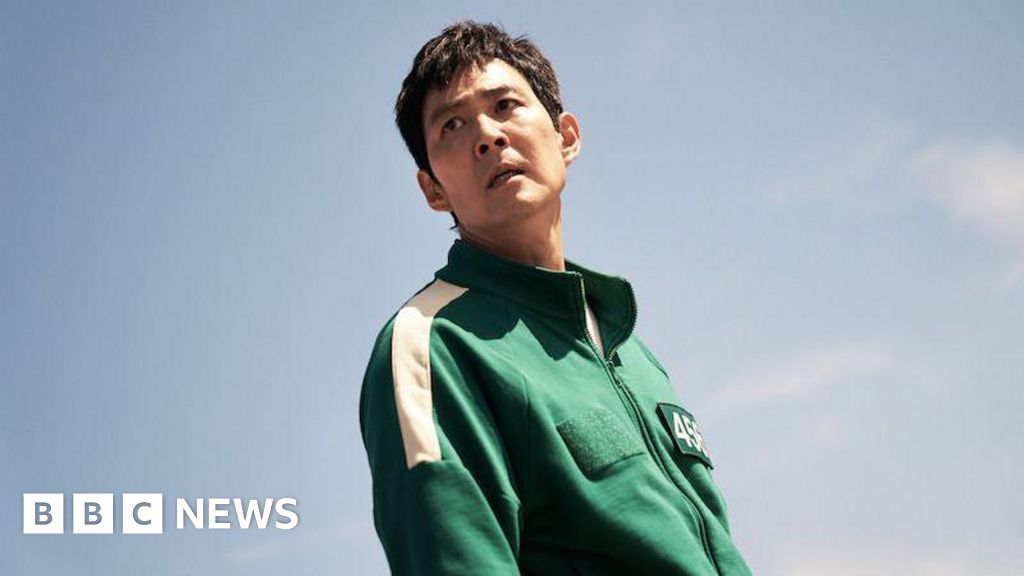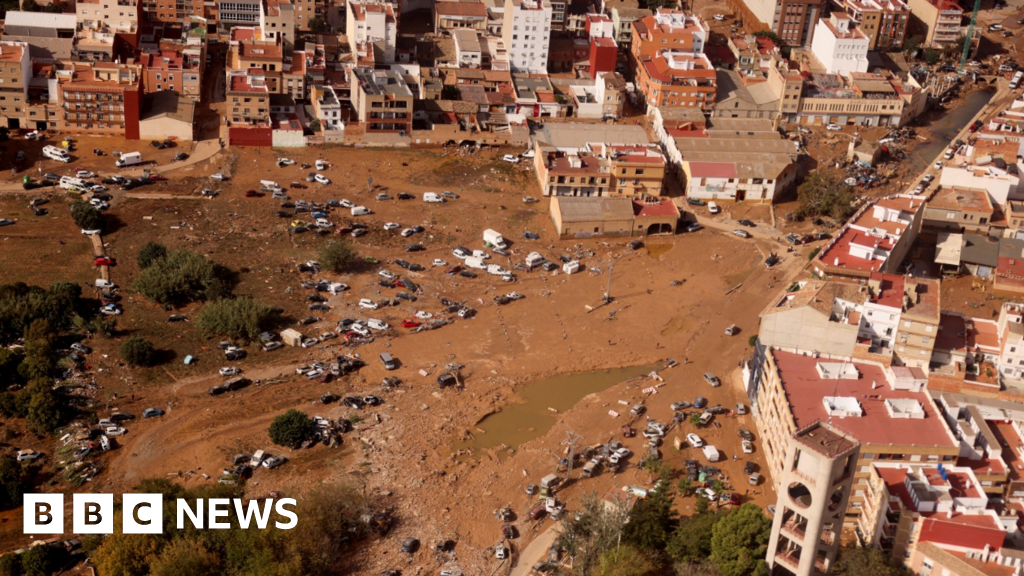ARTICLE AD BOX
 Image source, Reuters
Image source, Reuters
Hundreds of South Koreans protested against Japan's plan to release nuclear wastewater into the ocean
Hundreds of people in South Korean took to the streets of Seoul on Saturday to protest against Japan's contentious plan to release treated nuclear wastewater into the Pacific Ocean.
Tokyo is set to release the water from the tsunami-hit Fukushima nuclear plant later this month.
It has been approved by the UN nuclear watchdog, and a South Korean assessment found it meets international standards.
But protesters fear marine life will be destroyed and seafood contaminated.
Marching in central Seoul, they held signs reading "Protect the Pacific Ocean" and "Nuclear Power? No Thanks!".
Choi Kyoungsook of activist group Korea Radiation Watch said radioactive substances in the water "will eventually destroy the marine ecosystem".
"The sea is not just for the Japanese government, but for all of us and for mankind," she said.
Last month, the International Atomic Energy Agency (IAEA), published a report endorsing Japan's plan.
A few days later, South Korea released its own assessment that found that discharging the water should "not have any meaningful impact on our ocean areas," according to government minister Bang Moon-kyu.
However Japan has faced criticism at home and abroad.
Fishing and seafood industry groups in Japan and the wider region have voiced concerns about their livelihoods, as they fear consumers will avoid buying seafood.
And several international experts have shared their concerns over the plans, including one in China who said the IAEA report was "hasty", according to China's state-run Global Times newspaper.
More than a million tonnes of treated radioactive water is understood to be stored at the disabled plant in northern Tokyo. The water was used to cool the reactors destroyed by the devastating March 2011 earthquake and tsunami.
Japan's plan to discharge the water into the ocean was first announced in 2018, where it said the process would be carefully managed and the water would be further diluted by seawater before being released.
US President Joe Biden is due to meet his South Korean counterpart Yoon Suk Yeol and Japan's Prime Minister Fumio Kishida next week for a trilateral summit, where the controversial plan will be discussed.
"The governments of South Korea, the US, and Japan should view it an environmental disaster, rather than a political issue, and agree to block it for future generations," Ms Choi said.

 1 year ago
14
1 year ago
14








 English (US)
English (US)